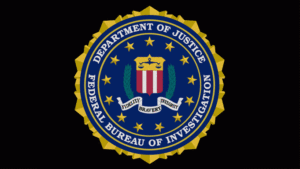FBI: Impostors posing as regulators threaten medical licensees nationwide with license suspension
 The Federal Bureau of Investigation warned licensed medical providers October 14 that they could be targets of a nationwide fraud scheme by people posing as state or federal regulators.
The Federal Bureau of Investigation warned licensed medical providers October 14 that they could be targets of a nationwide fraud scheme by people posing as state or federal regulators.
The criminals contact licensees such as doctors or pharmacists, representing themselves as state or federal regulators, and either announce that the person’s license has been suspended and they must immediately wire a substantial sum of money to avoid legal action or that they are under investigation and must send the money immediately to avoid license suspension. In one specific instance cited by the FBI, the extortionists demanded immediate payment of $15,000; in another case, a payment of $50,000 was ordered.
The warning came from the FBI’s Office of Private Sector in the form of a Liaison Information Report to warn medical providers of the fraud scheme.
The impostors claim to represent the U.S. Drug Enforcement Agency, the U.S. Department of Justice, or a state agency such as the medical board. The payment is supposed to be “in bond”—allegedly refundable in some cases— purportedly to ensure that the target does not leave the area. Various strategies are used to discourage the target from consulting the internet or calling a third party to check on the validity of the demand.
The impostors also attempt to dissuade the target from independently verifying the caller’s identity within the “investigating agency,” even outright prohibiting the target from disclosing the “investigation” to a third party.
The fraud scheme relies on “spoofing” emails and phone numbers for Caller ID purposes; providing fake names and badge numbers to make it appear that the impostors are calling from legitimate governmental agencies; and repeated harassment.
To add credibility to their threats, the impostors would provide details about the person including full names, state license numbers, and National Provider Identifier (NPI) numbers. Providers whose first language is not English or who may be non-U.S. citizens may even receive threats of deportation if the provider does not pay to end the “investigation.”
The LIR summarized multiple instances in which the impostors contacted medical providers by phone, email, and mail. Examples reported by the FBI’s Detroit Field Office:
- A Michigan medical provider was contacted via a virtual phone number by an unknown individual who stated that the medical provider’s medical license was suspended. The medical provider also received documents claiming to be from the state medical board and the U.S. Department of Justice, instructing the provider to wire $13,000 to avoid legal action.
- A Michigan medical professional returned a fraudulent phone call that purported to be from the state Board of Medicine to her place of employment. The caller then claimed to be with the state Licensing and Regulatory Affairs investigative unit and had the target’s state professional license number and NPI number.The caller further claimed that the FBI wanted to suspend her professional license immediately based on illegal drug trafficking and money laundering. The caller contacted the medical professional multiple times and asked for the medical professional’s bank account balances.In addition, the caller discouraged the medical professional from disclosing information about the calls to a third party and from using the internet for further research.
- A Michigan medical provider received fraudulent documents claiming to be from the state Board of Medicine and the FBI. The documents contained the medical provider’s medical license number and NPI number and claimed both had been suspended by the medical board because of the medical provider’s alleged involvement in an illegal drug trafficking investigation.The documents required a refundable bond of approximately $50,000 to ensure that the medical provider would cooperate with authorities and would not leave the area. The documents also threatened the medical provider with suspension of their medical practice and prohibited them from disclosing the investigation to a third party.
- • A Michigan pharmacist received a fraudulent phone call that claimed to be from the state Board of Pharmacy. The callers had the pharmacist’s pharmacy license number and claimed the pharmacist was under investigation for illegally distributing opioids.
- The Drug Enforcement Administration (DEA) issued a national press release on scammers spoofing DEA telephone numbers and posing as DEA employees to threaten DEA-registered practitioners for alleged violations of federal drug laws or involvement in drug-trafficking unless victims pay the scammers.
The FBI lists four best practices for licensees to avoid becoming a victim of an extortion scheme like this one:
- Use official websites and official phone numbers to independently verify the authenticity of communications from alleged law enforcement or medical board officials.
- Independently contact those boards or law enforcement agencies to confirm the identity of the person(s) contacting the provider.
- Do not provide personal identifying information (Social Security Number, date of birth, or financial information) in response to suspicious emails, phone calls, or letters and do not provide professional infor-mation (medical license number, NPI number, or DEA license number).
- Be wary of any request for money or other forms of payment regarding supposed criminal investigations by alleged law enforcement agencies or regulatory entities.

